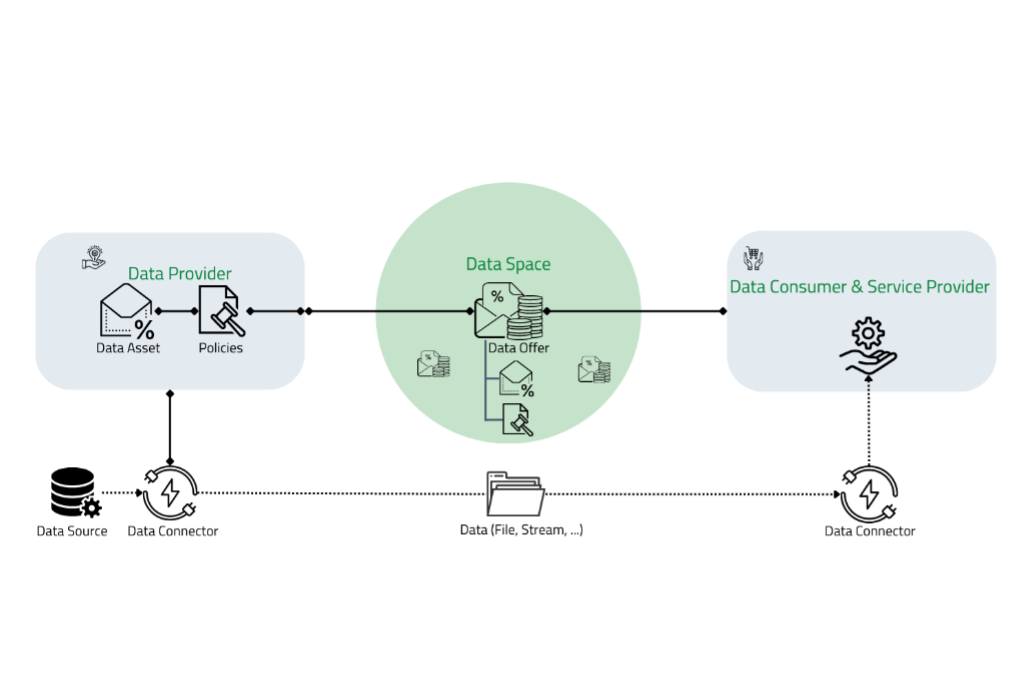Data Spaces and Their Benefits
Data spaces focus on superordinate domains, with a decentralised data infrastructure while maintaining data sovereignty.
Data spaces focus on superordinate domains, with a decentralised data infrastructure while maintaining data sovereignty.
In a Data Space, data is made available for potential innovative services while maintaining data sovereignty. Data Spaces focus on overarching domains (economic sectors, industry sectors, or other specialized application areas) and are based on a decentralized data infrastructure that can support various use cases.
The Data Space also offers the opportunity for cross-border collaboration.

Data Governance is a pivotal aspect in the concept of Data Spaces and forms the foundation for establishing an effective digital marketplace. To realize an open and decentralized data exchange that is also compatible with other EU data spaces, adhering to the following principles within a Data Space is crucial:
Ensuring data sovereignty
Promoting interoperability within the sector
Guaranteeing transparency
Maintaining data sovereignty
Building trust among participants.
Gaia-X provides a framework that lays the groundwork for unified European data spaces. Gaia-X has developed the technical IDS standard (IDS - International Data Spaces) intended to promote the establishment of cross-sector data spaces. The International Data Space Association (IDSA) and the Data Space Support Center (DSSC) are working to ensure the interoperability of data spaces. We collaborate closely with the Data Intelligence Offensive (DIO), an association dedicated to promoting the data economy and optimizing data technologies, and a member of Gaia-X Austria, ensuring that the Tourism Data Space is built in compliance with Gaia-X. On a semantic level, we are in dialogue with the Open Data Tourism Alliance (ODTA), a platform for the semantic alignment of tourism data.
Use cases emerging from Data Spaces encompass data exchange and trading for specific application scenarios, connecting data providers, implementers, and consumers, with a focus on secure and trustworthy data exchange.
Each use case represents a specific application within a Data Space, involving at least two parties. In developing use cases, we place great emphasis on the involvement and active participation of stakeholders and data providers, supported by the organizational and facilitative expertise of the DIO. These use cases enable the exchange, use, and trading of data within a clearly defined area, including data analysis and visualization to provide detailed insights.
Our overarching goal is to develop and implement scalable and cross-industry solutions for the tourism sector.